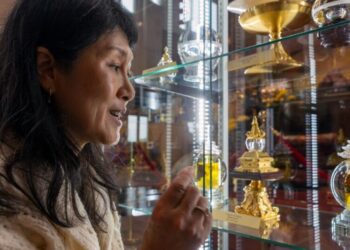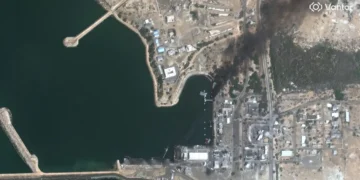Rey Mysterio’s Daughter Begins Wrestling Training
It might not be lone before there’s another member of a wrestling dynasty competing inside the squared circle. Rey Mysterio...
Frustrated flyer shocks misbehaved child by reprimanding him mid-flight: ‘Not going to tolerate this’
Many things are out of your control when on a flight, especially when there are irritating youngsters not on their...
Gunman in deadly Texas bar shooting wore shirt with Iranian flag, official says
AUSTIN, Texas — The gunman who killed two people at a bar in Texas early Sunday in a shooting that left 14...
Connor Storrie Knew What ‘SNL’ Viewers Wanted to See
Connor Storrie is well aware that his fans lust for him. The Heated Rivalry actor and first-time Saturday Night Live...
‘Master manipulator’ Shia LaBeouf faces ‘tragic ending’ if he doesn’t stop boozing: sources
Shia LaBeouf was ordered to rehab last weekafter his New Orleans boozy rager, a penalty insiders derided as a “celebrity...
James Webb Takes Long, Hard Look Inside Uranus
Uranus, the seventh planet from the Sun, has only been visited once by NASA’s Voyager 2 spacecraft, which performed a...
Attack on Iran may have motivated man who killed 2 in Austin, officials say
Authorities said a man who fatally shot two people and wounded 14 others at a bar in Austin early Sunday...
Princesses Beatrice and Eugenie banned from attending Royal Ascot as parents’ disturbing ties to Jeffrey Epstein unravel: report
Princesses Beatrice and Eugenie were reportedly told they can’t attend the Royal Ascot due to their parents’ disturbing ties to...
NY town ‘extremely mismanaged’ tax money as 35-year Dem boss on hot seat: audit
A suburban town run by one of the Empire State’s longest serving Democrats left millions in tax dollars uncollected, including...
U.S. Senate candidates in Texas make final pitches ahead of Tuesday’s primary
SAN ANTONIO — A heated U.S. Senate race in Texas entered its final stretch Sunday with candidates from both parties making final...














